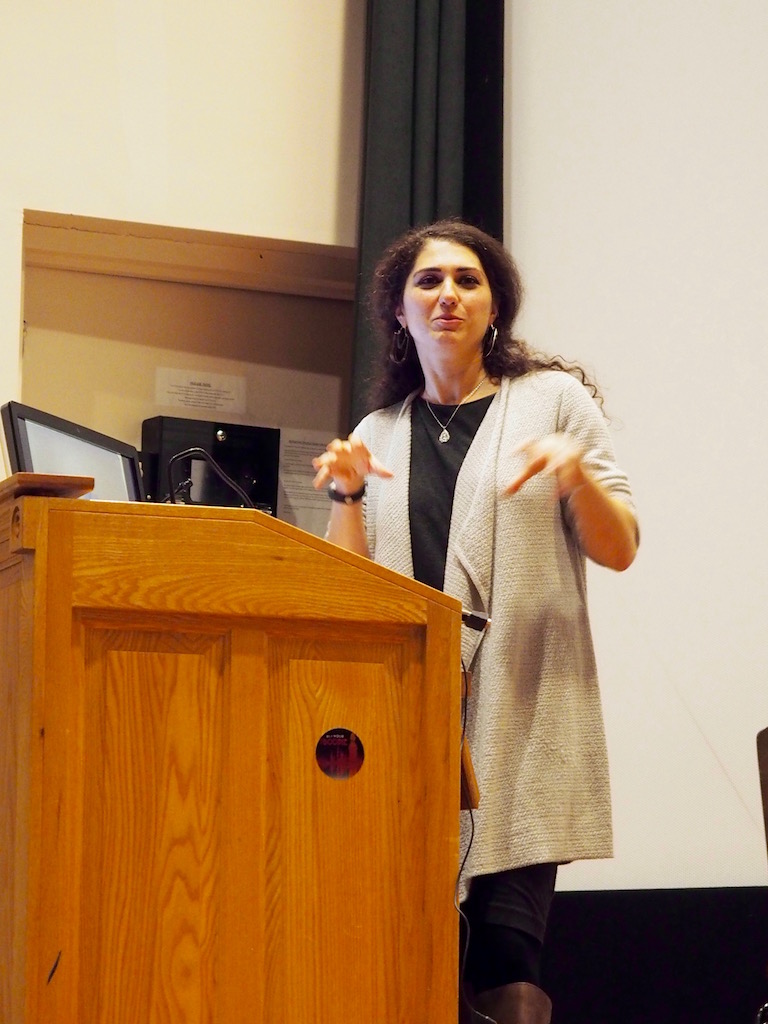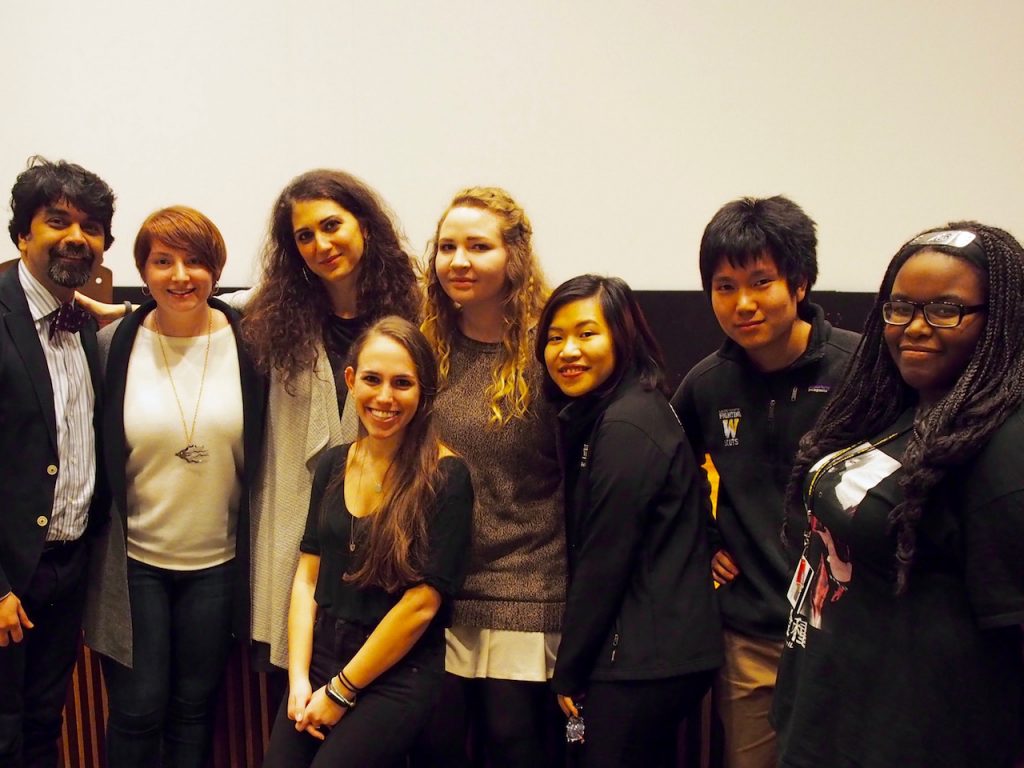Students from the College of Wooster, Kenyon, and Denison congregated in Granville to hear Alia Malek read and answer questions from her recently released memoir, The Home that was our Country. We were lucky to be the first stop in the public launch of the book.
Malek is an author and civil rights lawyer. Born in Baltimore to Syrian immigrant parents, she began her legal career as a trial attorney at the U.S. Department of Justice’s Civil Rights Division. She has worked in the legal field in the U.S., Lebanon, and the West Bank until she returned to complete a master’s degree in journalism from Columbia University. Since then, she has written for various international media outlets including New York Times and Jadaliyya. She has authored multiple books including “A Country called Amreeka”. In 2016, she was awarded the 12th annual Hiett Prize in the Humanities.

In her memoir she weaves stories about her family in Syria and the United States with the socio-political history of the region. At the talk, she narrated the complicated nature of her family’s personal journeys between Syria and the United States. She highlighted definitive moments in her life such as a visit to Syria after she graduated from high school. In this story about her arrival at the Syrian airport, “camcorder in hand”, she deftly illustrates her journey to finding a voice in the presence of the arbitrary policy practices of the Syrian regime.
One aspect that Malek dwelled upon was sectarianism and the problematic way in which the media and the west understands the Syrian and Middle Eastern conflict. She quoted Bassem Haddad who argues that when we hear about the Middle East “One finds very little about the political connections of these rulers with their regional and international supporters/bankrollers.” Their complicity is just as important as those of the local elites in telling the story of the Arab uprisings.
Further, Bassem Chit, has suggested that, “Sectarianism’s role in the political and ideological arena has always been centred on redefining a crisis in a new ideological form – an attempt to reproduce a “new” hegemony to conceal the crisis of bourgeois society. The reason why religion still plays an important role in defining political expression in Arab and Middle Eastern societies is due to Western colonial rule. Capitalism created both nationalism and sectarianism, defined as a reaction and a by-product of the crude social transformations it generated.
Before colonial occupation, religious institutions in the Middle East did not rise to the commanding heights as those in the West. Instead they played a servile role to the existing autocracies. Under the Ottoman Empire the Qanun (the secular legal system) coexisted with religious law (Sharia).
During the period of deteriorating feudal power religious institutions shifted their allegiance to the new bourgeois classes, and in some cases these institutions expanded their power base through the acquisition of land or by encouraging capitalist investments in land under their control.”
To understand Syria today, it may be better to study this “contact zone” historically with reference to global and local process that shaped the extant power relationships.

